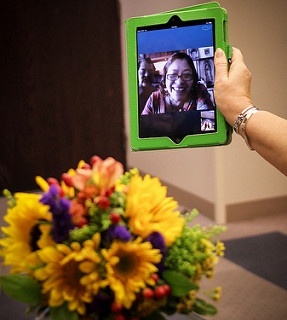Whatsapp, the most popular messaging app in the world, is currently testing a beta version, that will include free video calling.
 As we read in different articles on the web, and according to few rumors from translators that work for Whatsapp, the application is currently testing a beta version that will feature free video calls to its users.
As we read in different articles on the web, and according to few rumors from translators that work for Whatsapp, the application is currently testing a beta version that will feature free video calls to its users.
Applications like Skype, Viber, Line and Facetime are already well-known because they do offer to their users VOIP services and video call features. The usage of VOIP (Voice over Internet Protocol) over Wi-Fi applications is growing (see “Tanaza’s 5 predictions for the IT industry in 2016”) and nowadays, thanks to the large number of Wi-Fi deployments worldwide, people are encouraged to take advantage of Wi-Fi connections to call (and video-call) their family and friends through free or paid apps.
Whatsapp, with its statute of worldwide leader application for messaging, is lagging behind so far: it offers instant messaging and free audio call since last year. With 450 million users every month and to keep its leadership, WhatsApp has to adapt and renew itself, that is why now it wants to upgrade its application by offering free video calling, as well.
The interface will be similar to that of an audio call and the user will be able to switch from the front to the back camera of their phone, and mute the microphone, however, the video window will take up the biggest part of the screen.
 As a result of its recent acquisition by Facebook, Whatsapp is taking advantage of a bigger budget by making the application’s new video call feature available on Android, Windows Phone, and iOS versions. With 1 billion phone numbers registered in this database, this new service will clearly have an impact on the competition, particularly on competitors like Skype.
As a result of its recent acquisition by Facebook, Whatsapp is taking advantage of a bigger budget by making the application’s new video call feature available on Android, Windows Phone, and iOS versions. With 1 billion phone numbers registered in this database, this new service will clearly have an impact on the competition, particularly on competitors like Skype.
Despite its acquisition by Facebook, the application’s policy did not change, its use is totally free for the first year and 0.99$ per year for the following years. The aim remains the same, to ensure that “neither cost [nor] distance should ever prevent people from connecting with their friends and loved ones”.
Still, applications that offer video call can’t work without a good network capacity. Wi-Fi networks are needed to support these kinds of applications: if there is not enough bandwidth for the application to run seamlessly, then the application will not be able to successfully operate. Applications for video call, like Apple Facetime, need 900kbps, while a simple audio call needs between 27 and 93 kbps for call streaming, and 5 kbps for call signaling.
While many factors must be taken into consideration when developing new applications, it is certain that having access to a stable Wi-Fi connection is key applications to run smoothly.
This means that when you are offering a Wi-Fi service, it is important to consider the throughput requirements of the applications run on your network so that your infrastructure can be powerful enough to enable your clients to fully enjoy the Wi-Fi experience!
Although not all networks or devices are suitable for VOIP phone calls or video call with Wi-Fi, it is only a matter of time before this becomes a popular way to communicate.
Related Articles:

